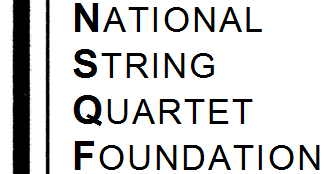John Kinsella [1932-2021]
‘On hearing Purcell and Shostakovich at Bantry House – June 2008’ [2009]
1. Prelude
2. Toccata
3. Epilogue
Performed by the Lir Quartet
National Concert Hall, Dublin, 14th November 2021 (live audio recording)
On Monday 30th June last year [2008] the Rosamunde Quartet gave an evening concert at Bantry House. Each half consisted of two Fantasias by Purcell followed by a Shostakovich string quartet.
The recital was broadcast live on RTÉ lyric fm and it was arranged that there would be no applause until the entire event had concluded. The effect was quite profound and, it seemed to me, drew the audience very closely into the music making.
Andreas Reiner, leader of the Rosamunde Quartet, wrote a most thought provoking note on the concert and I quote an extract from this “And then there is the sound! What kind of miracle is this? Three hundred years apart yet so close. When Shostakovich fantasises over D-S-C-H, that might as well have been written by Purcell. And listen to the opening of Shostakovich No.15! It’s not just the fugue-fantasie-counterpoint-thing , it’s the unusual and immediate sense of personal conduct. Not the older, but the younger scores seem to tell the player a lot about the use of vibrato. Both composers seem to ask for a certain “breathing” sound.
This new work is a recollection of last year’s Rosamunde Quartet concert shaped into a prelude, toccata and epilogue, and draws on motifs principally from the opening and closing works, Purcell’s Fantasia No.2 in B-flat and Shostakovich’s last quartet, No.15 in E-flat minor. Note by John Kinsella
Return to NSQF Irish Quartet Archive main page
John Kinsella (8 April 1932 – 9 November 2021) was an Irish composer and the country's most prolific symphonist during the twentieth century.
Kinsella was born in Dublin, the younger brother of the poet and editor Thomas Kinsella. He studied viola at the College of Music (now the DIT Conservatory of Music and Drama) in Dublin and took private composition lessons with Éamonn Ó Gallchobhair for a brief period. He developed an early interest in serialism and began to explore many of the techniques evolved by the contemporary European avant-garde. Supported by Gerard Victory and the conductor Hans Waldemar Rosen he had a number of works accepted for performance by RTÉ ensembles, including his first two string quartets (1960, 1968), a chamber concerto (1964), Montage (1965) for soprano and chamber ensemble, Two Pieces for String Orchestra (1965), and Montage II (1970) for orchestra. This group of works culminated in A Selected Life (1973), a large-scale composition based on verses written in memory of the recently deceased Seán Ó Riada by his brother Thomas.
In 1968, he was appointed senior assistant in the music department of RTÉ. As he found himself growing increasingly disillusioned with the avant-garde his attitude to his own work began to change: he came to question the artistic validity of much of what he had written. After completing his String Quartet No. 3 (1977) he stopped composing for 18 months.
When Kinsella resumed composition it was with a resolve to find his own distinctive creative voice regardless of current fashions. The first work he composed in this new spirit of independence was The Wayfarer: Rhapsody on a Poem of P.H. Pearse (1979), commissioned for the centenary of Pearse's birth.
Kinsella received the Marten Toonder Award in 1979 and became a founder member of Aosdána in 1981. He succeeded Victory as Head of Music in RTÉ in 1983, but took early retirement in 1988 (the year he completed his Symphony No. 2) to devote himself fully to composition. As part of an arrangement made with RTÉ on his retirement the station undertook to commission a series of large-scale orchestral works from him.
He died in Dublin on 9 November 2021, at the age of 89.
